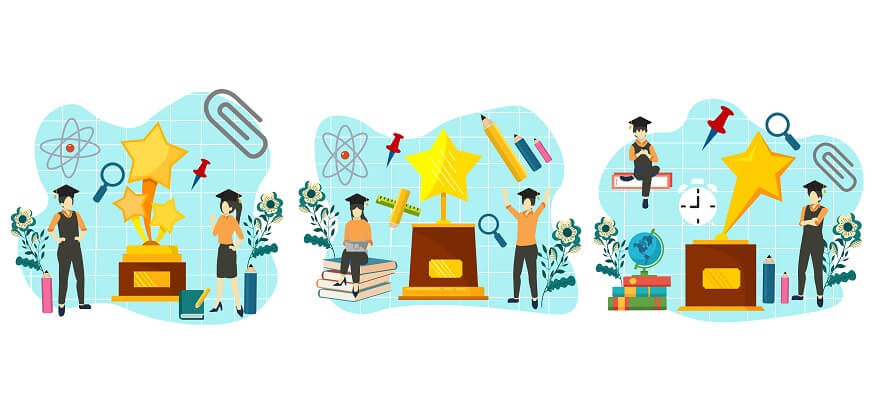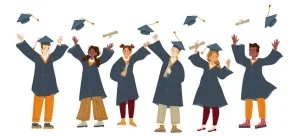Explore the World of Extracurricular Activities: A Key to Unlocking Student Potential

Extracurricular activities are those fun and exciting things that students do outside of regular classroom learning. These activities are very important for the overall growth and development of students. They offer a great opportunity for young minds to explore and excel in different areas. Nowadays, extracurricular activities are very important because they help students pursue their passions and become well-rounded, socially skilled, and versatile individuals.
Let’s check out how extracurricular activities open an absolutely new world for students.
Demystifying Extracurricular Activities and Their Spectrum
Have you ever wondered how participating in activities like sports, music, or volunteering can benefit a student’s overall development? These activities are called ‘extracurricular activities’, and they are known to positively impact a student’s academic performance, social skills, and self-esteem. When students participate in these activities, they sharpen their cognitive skills like concentration and time management and learn important life skills like teamwork, leadership, and communication.
Extracurricular activities span a broad range, encompassing various interests and skills, and can be broadly categorized into several types:
- Academic Clubs: These include debate teams, science clubs, and math leagues
- Arts and Culture: This category encompasses music, theater, dance, and fine arts clubs
- Sports and Physical Activities: From team sports like soccer and basketball to individual pursuits like martial arts and gymnastics
- Community Service and Volunteering: Includes activities like volunteering at local shelters or participating in environmental clean-ups
- Technology and Innovation: This category can include robotics clubs, coding workshops, and science fairs
- Special Interest Groups: These can range from chess clubs to gardening groups
Unpacking the Benefits of Extracurricular Activities for Students
The benefits of engaging in extracurricular activities are extensive and impact various facets of a student’s life:
Enhanced Academic Performance:
Regular participation in activities, especially those aligned with academic interests, can reinforce classroom learning and improve overall academic performance.
Social Skill Development:
Extracurriculars provide a social framework where students interact, collaborate, and build relationships. This can enhance their social and communication skills.
Emotional and Mental Well-being:
Engaging in diverse activities can boost self-esteem, reduce stress, and promote a sense of belonging, contributing to overall mental health.
Cultivation of Life Skills:
Time management, teamwork, leadership, and problem-solving are some essential life skills that can be honed through extracurricular involvement.
College and Career Readiness:
Participation in these activities enhances college applications and resumes, demonstrating a well-rounded character and diverse skill set to potential colleges and employers.
Fostering Passion and Creativity:
Extracurricular activities allow students to explore and cultivate their interests, leading to personal satisfaction and creative expression.
Top 10 Extracurricular Activities That Make a Difference
Extracurricular activities allow students to explore their interests and passions, which can guide them in their future educational and career choices.
- Sports Teams:
- Music and Arts Clubs:
- Debate and Public Speaking:
- Volunteering and Community Service:
- Science and Tech Clubs:
- Student Government:
- Cultural Societies:
- Entrepreneurship and Business Clubs:
- Environmental Clubs:
- Media and Publication:
Participation in sports such as soccer, basketball, or swimming teaches more than just physical skills. It instills discipline, teamwork, and resilience. Students learn the value of hard work, perseverance, and gracefully dealing with both victory and defeat.
Engaging in the arts, whether it’s playing a musical instrument, singing, or painting, enhances creativity and provides a therapeutic outlet for self-expression. These clubs also encourage cultural appreciation and can lead to lifelong hobbies or careers.
These activities are crucial for developing articulate communication skills, critical thinking, and the ability to argue constructively. They also boost confidence in public speaking, a valuable skill in numerous professional fields.
This broad category includes helping in local shelters, participating in environmental clean-ups, or working with charities. It cultivates empathy, civic responsibility, and a broader understanding of societal issues.
From robotics to coding clubs, these groups encourage innovation and technical skill-building. They are essential for students interested in STEM fields, offering hands-on experience with real-world applications.
Involvement in student governance provides a practical lesson in politics and leadership. It offers an understanding of democratic processes, organizational skills, and the opportunity to make tangible changes in the school environment.
These clubs promote an appreciation for diverse cultures and languages. They can include language clubs, international relations, and cultural exchange programs, fostering global awareness and inclusivity.
These prepare students for the business world by teaching basics of entrepreneurship, financial literacy, and management skills. They often involve real-life projects like organizing school events or running small enterprises.
Participation here raises awareness about ecological issues and sustainability. Students learn about conservation, renewable energy, and can engage in projects that have a real impact on the environment.
Working on the school newspaper, yearbook, or a digital publication offers invaluable experience in journalism, photography, and digital media. It develops writing, researching, and critical thinking skills, and provides a platform for students to voice their opinions.
Participation in extracurricular activities is not just an add-on to the academic experience; it is an integral part of it. These activities equip students with skills and experiences that are invaluable in both their personal and professional lives. These prepare young individuals to face the world with confidence, resilience, and a well-rounded perspective. Therefore, parents and educators should recognize the vast potential of extracurricular activities, besides academics. Who knows it might lead students to a unique and successful career!
At Billabong High International School, we nurture every student’s potential through a diverse range of extracurricular activities. Connect to us now to learn more about our curriculum.













